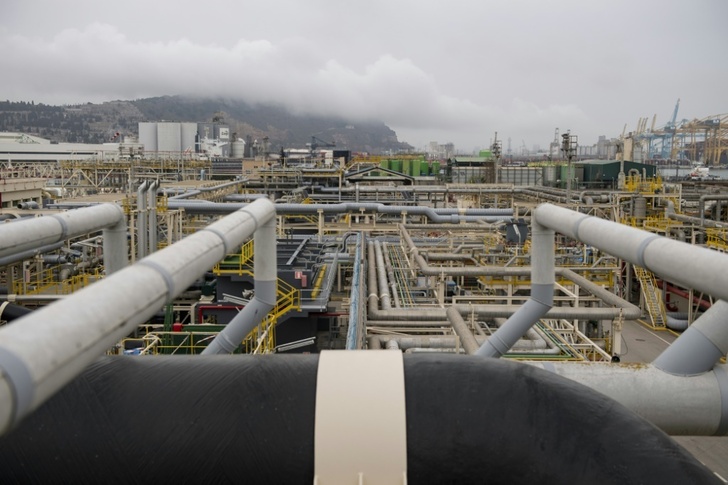With Europe facing a major energy crisis, Spain wants to become the new gateway for gas through an ambitious trans-Pyrenees pipeline and is hoping supply-starved Germany will pressure a reluctant France.
Madrid has long been hoping for the revival of plans to build a pipeline connecting the Iberian Peninsula via France to central Europe, which was abandoned in 2019 over regulatory and funding issues.
But Russia's war on Ukraine and its reduction of gas deliveries to Europe has revived interest in the project, notably from Germany, with Chancellor Olaf Scholz saying such a pipeline could make "a massive contribution" to easing the supply crisis.
He has invited Spain's Pedro Sanchez for talks on Tuesday with energy likely to be a key issue.
Beyond the gas crisis, Spain is hoping that improving its connectivity with the rest of Europe will open the way for it to become the European Union's new hub for green hydrogen -- a key energy source of the future.
And for that, a pipeline across the Pyrenees would be crucial.
- France obstacles -
In 2013, work began on the so-called MidCat project, a pipeline linking Spain's northeastern region of Catalonia to the south of France through the Pyrenees, aimed at connecting Spain and Portugal to central Europe's gas network.
Six years later it was dropped by regulators in France and Spain over its environmental impact and lack of economic viability.
And despite the current energy crisis, France has been decidedly unenthusiastic about reviving the project.
But that has done little to cool the ardour of the Spanish premier, who is determined it will go ahead -- even if it means resorting to "plan B": building an underwater connection to Italy, he said in Bogota last week.
Ecology Minister Teresa Ribera told Antena 3 television last week the Italian alternative was being studied, but admitted it would be best to go for "the easiest option... across the Pyrenees", saying such a pipeline "could be operational by late 2023 or early 2024".
"It's not a bilateral issue between Spain and France," added Ribera in an interview published Monday in Spanish daily El Mundo.
"It's about the European project. I wonder where is France's European ideal."
Germany is already onboard.
"I have been very active in talks with... the French president and the president of the European Commission in advocating that we take on such a project," Scholz said on August 11.
It could make "a massive contribution" to easing the supply crisis, he added.
Spain has six liquefied natural gas (LNG) terminals for converting deliveries made by sea into gas, making it the country with the biggest regasification capacity in the EU.
Portugal also has a plant, meaning the Iberian peninsula has the capacity to become a hub for gas shipped in from the United States while the transition to renewable energies is being completed.
- Hydrogen hub -
Spain and Portugal want the EU to foot the bill for building such a connection, estimated at some 440 million euros ($440 million).
Such a pipeline could never be ready in time to ease the anticipated shortages this winter, but could be a key conduit for exporting green hydrogen, an area in which Spain is already taking a lead.
Green hydrogen is produced by passing an electric current through water to split it between hydrogen and oxygen, a process called electrolysis. It is considered green because the electricity comes from renewable energy sources that don't create harmful emissions.
When fossil fuels burn, they emit harmful greenhouse gases, but hydrogen only emits harmless water vapour.
"Spain is going to become the world's leading hub for the transport of green hydrogen which is the future of the European economy," Josep Sanchez Llibre, head of Catalonia's Foment del Treball business confederation, told Spain's public television this month.
Visiting Paris last week, Felix Bolanos, a cabinet minister and close ally of the Spanish premier, said MidCat was "a long-term project".
"The idea is that over the medium- to long-term, it will be able to transport green hydrogen as well as blue hydrogen," he said.
Blue hydrogen is produced by using methane in natural gas.
"Spain must take the lead in making us the great European and global gas and hydrogen interconnection," said Sanchez Llibre.
al/hmw/chz/rox/lth
© Agence France-Presse
Your content is great. However, if any of the content contained herein violates any rights of yours, including those of copyright, please contact us immediately by e-mail at media[@]kissrpr.com.
Source: Story.KISSPR.com

